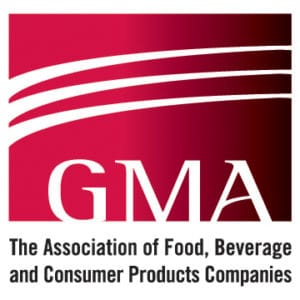Seattle PI
by Joel Connelly
 A Thurston County judge on Friday rejected efforts by the Grocery Manufacturers Association to squelch a lawsuit in which state Attorney General Bob Ferguson accuses the Washington, D.C.-based lobby of laundering millions of dollars in last fall’s campaign.
A Thurston County judge on Friday rejected efforts by the Grocery Manufacturers Association to squelch a lawsuit in which state Attorney General Bob Ferguson accuses the Washington, D.C.-based lobby of laundering millions of dollars in last fall’s campaign.
The AG has accused the food industry group of setting up a special “Defense of Brand” fund to disguise the source of money spent to defeat Washington’s Initiative 522.
I-522 would have required that genetically modified foods and seeds sold in Washington be so labeled. It lost narrowly after a record $20.1 million No-on-522 campaign paid for by food manufacturers and the agribusiness industry. The bulk of the money was collected by the Grocery Manufacturers Association.
Judge Christine Schaller rejected the association’s motion to dismiss the lawsuit.
“Today’s ruling is an important step in our work to hold the Grocery Manufacturers Association accountable for the largest campaign finance concealment case in Washington history,” said Ferguson.
“We intend to send a strong message to all. If you want to engage in political campaigns in Washington, you have to play by the rules.”
The case has produced a fascinating trail of documents from within the big food-industry lobby.
Agribusiness and food manufacturers spent more than $47 million in 2012 to narrowly defeat a California ballot proposition to require labeling of genetically modified foods.
Anticipating additional battles, specifically in Washington, the association set out to, in its words, “scope out a funding mechanism while better shielding individual companies from attack for providing funding” to defeat ballot measures.
A bevy of food giants — Pepsico, Coca-Cola, Kraft Foods and Campbell Soups — had come under fire for their massive spending in the California campaign.
The solution was for the Grocery Manufacturers Association to solicit contributions from big food companies into its “Defense of Brand” fund, so the Association — not the companies — could appear as the big donor on state Public Disclosure Commission filings.
The association retreated after Ferguson filed his lawsuit in October, and released figures on who gave how much to No-on-522.
Just $600 out of the $20.1 million No-on-522 war chest came from within the state of Washington.
Five corporations donated $14 million-plus to defeat the measure: The agribusiness giant Montsanto spent $5.4 million; Dupont put in $3.9 million; Pepsico donated $2.5 million; and Nestle and Coca-Cola put up $1.5 million apiece.
As is typically the case, the industry campaign set up a front group. A woman was put in place as titular spokesperson. The real work was done by a consulting firm that has been running corporate campaigns against initiatives for nearly 40 years, Winner & Mandabach, based in Beverly Hills, California. It blanketed the airwaves with TV spots featuring Washington citizens.
It was barely enough to win. The campaign may be over, but Ferguson has been tenacious in pursuing his case against its major financier.
Judge Schaller did throw out one small provision of state law, the requirement that a political committee filing with the Public Disclosure Commission show $10 contributions from at least 10 Washington citizens.
One political figure has also benefited from the No-on-522 campaign. The saturation TV campaign featured ex-state Agriculture Commissioner Dan Newhouse in its ads. Newhouse is now running as a Republican for the Central Washington seat in Congress held by retiring Rep. Doc Hastings, R-Wash.

